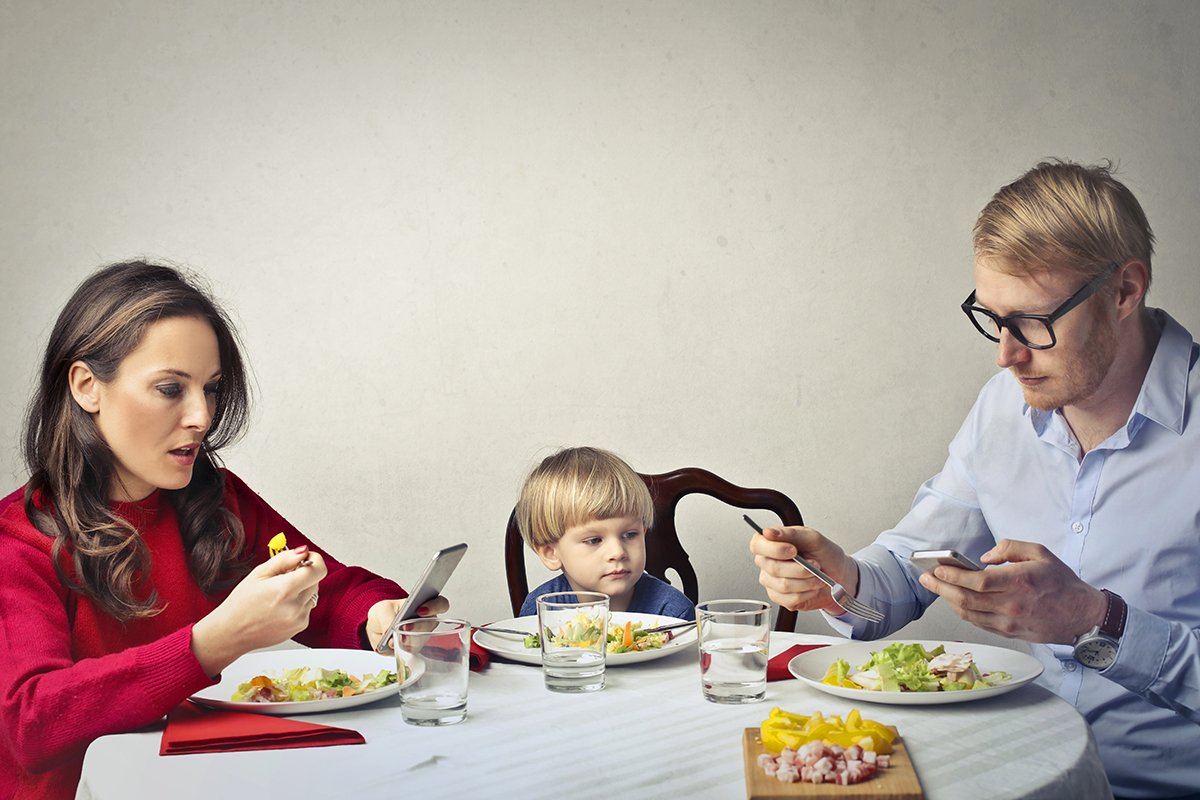
It’s a common scene: the table is set for dinner as you call the kids to eat, adding the finishing touches to the plates. A new guest at the table appears, uninvited, but often allowed—a cell phone, a tablet or even a computer.
A nationwide study conducted by Wakefield Research found that 2 in 5 parents could not remember the last time their family had a device-free meal.
But the kids aren’t solely to blame. According to the study, 52 percent of parents have been told by their children to put their devices away during meals.
“Screen time is one of the most common power struggles I see between children and parents,” Dr. Nicole Joseph, clinical psychologist for The Child & Family Counseling Group, said. “It is difficult for parents to determine how much screen time is appropriate and how to monitor screen time.”
According to the American Academy of Pediatrics, using too much technology can limit face-to-face interactions, family-time, outdoor-play, exercise and sleep, and The Center for Integrative Brain Research at Seattle Children’s Hospital found that when young mice were exposed to six hours of sound and light, their brains were wired at a higher baseline, allowing them to remain calm in high-stress environments, but exhibit symptoms comparable to ADHD.
While Dr. Joseph explains that playing on a phone will not cause ADHD, she does warn that “technology can act as a magnifier for problematic inattention and avoidance/ escapism, which is why setting limits and providing alternatives can be so helpful.”
For families struggling with where to draw the line with their devices, Dr. Joseph offers five tips:
Be a good role model
“Kids learn by parents modeling; therefore, your behavior as a parent will set the tone in your home,” Dr. Joseph said. “If you do not want your child to have their phone at dinner, then you cannot have your phone at dinner. Set boundaries with your phone usage and with your kids’ phone usage.”
Set technology limits early
“Starting to monitor your child’s tech use in high school is too late,” Dr. Joseph pointed out. “Start to monitor early and set limits as soon as your child starts having screen time on any sort. Parents should be setting appropriate limits from the time kids are toddlers using leap pads.”
Keep tabs on what your child is watching
“Monitoring your child from an early age is very important,” Dr. Joseph said. “If that ship has sailed, it is never too late to sit your kids down and tell them that you will now be monitoring their phone and social media. It is important for parents to disclose this to kids in advance to avoid trust issues between kids and parents.”
Get tech savvy yourself
“Technology can work with you as a parent,” Dr. Joseph explained. “For example, there are an increasing number of programs and apps which parents can use to monitor and regulate their kids screen time. A cool new app I just heard about is called: OurPact. It allows parents to monitor phone time, texts and turn on or off certain apps during certain times.”
Find news ways to entertain
“Help your kids with age appropriate alternatives to technology,” Dr. Joseph advised. “Sometimes kids are on their phone as a default because it happens to be accessible and provides mental stimulation. I like the idea of making an activity jar—suggestions about things kids and parents can do together like read, play board games, etc.”

